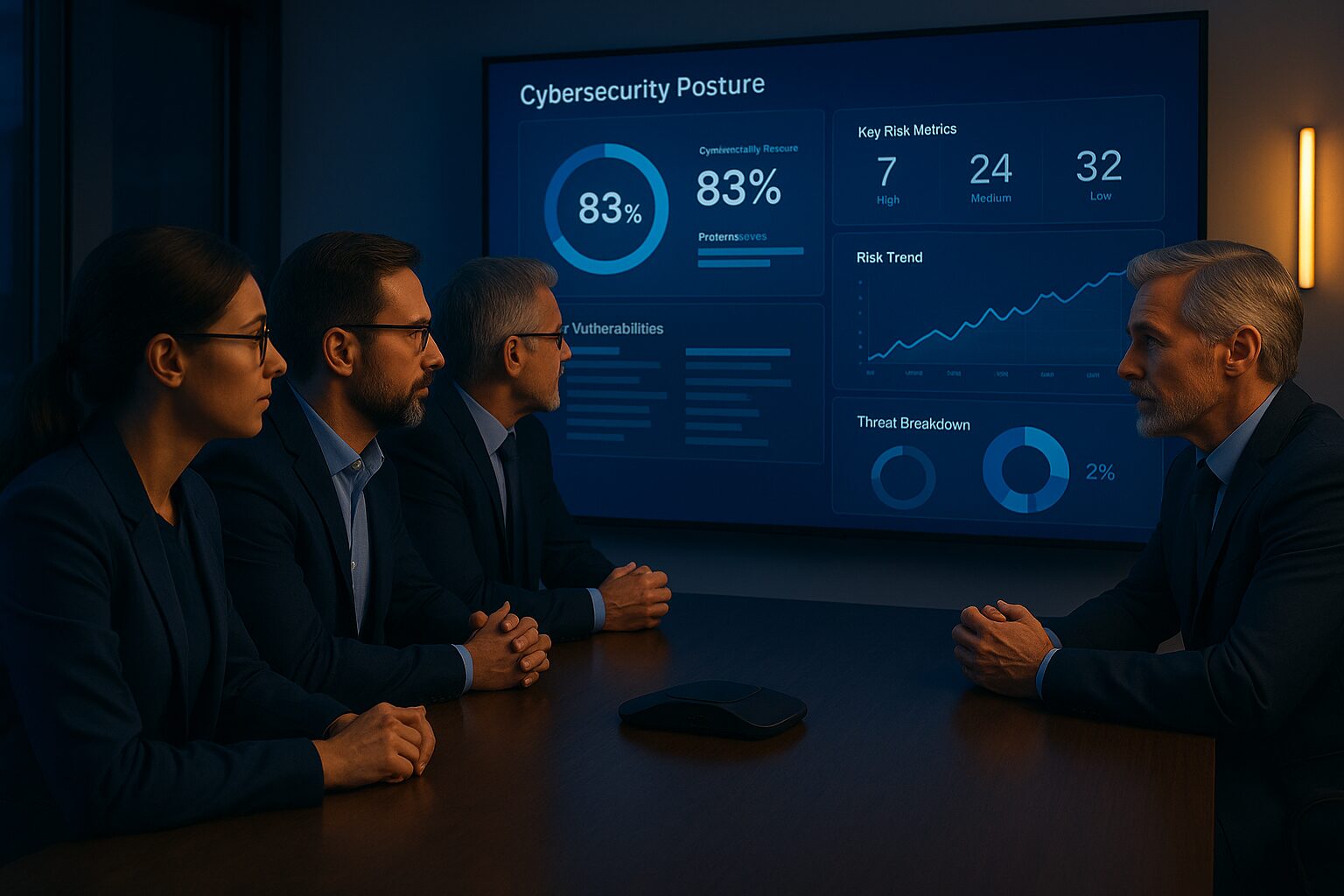Let’s be real: running a healthcare organization today means walking a tightrope. You’re expected to deliver high-quality care, protect mountains of sensitive data, meet ever-evolving compliance standards—and do it all while keeping costs in check.
And all of that is happening while you’re being targeted.
According to IBM’s 2024 Cost of a Data Breach Report, healthcare remains the most-breached industry for the 13th year in a row, with the average breach costing more than $10 million. That’s not just a line item—it’s a reputational risk, a patient safety issue, and a regulatory nightmare.
At the same time, you’re being pushed to digitize. Whether it’s cloud-based EHRs, remote patient monitoring, or data-sharing between providers, tech is central to how modern healthcare functions. But when internal IT teams are already stretched thin, keeping up with the pace of change—and staying secure—can feel impossible.
That’s where the right IT partner comes in. Not a vendor. Not a hotline. A true partner—one who understands your industry, helps you stay compliant, protects your environment, and makes your daily operations run smoother.
Core Capabilities You Should Expect from a Healthcare IT Partner
Not all IT providers are built for healthcare—and that matters. The right partner should do more than respond to tickets. They should actively protect your business, support your clinicians, and help you plan for what’s next.
Here’s what that really looks like:
Advanced Cybersecurity & Compliance Support
Protecting patient data is non-negotiable. A healthcare-ready partner should bring end-to-end protection that includes:
- Managed Detection & Response (MDR) for real-time threat containment
- Endpoint Detection & Response (EDR) to secure mobile devices and workstations
- SIEM tools for log monitoring, anomaly detection, and alerts
- Firewall management and proactive security policy enforcement
But protection isn’t enough—you also need to prove you’re compliant. That means support for:
- HIPAA, PCI, and FTC Safeguards Rule adherence
- Routine risk assessments
- Audit-ready documentation you can hand to regulators with confidence
Let’s Talk About Your Healthcare IT Strategy
Strategic IT Planning
In healthcare, IT isn’t just background infrastructure—it’s central to how care is delivered, how operations scale, and how compliance is maintained. Without a long-term strategy, even the best systems eventually become roadblocks.
A great IT partner doesn’t just fix problems as they pop up—they help you anticipate what’s coming and plan accordingly. That means:
- Technology roadmaps that support clinical and operational growth
From integrating new EHR features to preparing for multisite expansion, your roadmap should reflect where your organization is headed—not just where it is today.
- Budget forecasting and lifecycle planning to reduce surprise costs
No one likes unexpected capital expenses. Strategic planning includes refresh cycles for hardware, timelines for license renewals, and proactive planning for major upgrades—so you’re never caught off guard.
- Guidance on regulatory trends and how to align with them
As HIPAA, the FTC Safeguards Rule, and state-level legislation continue to evolve, your IT partner should help you stay one step ahead—with recommendations tailored to your specific risk profile, patient population, and tech stack.
- Prioritization of patient experience and staff efficiency
The best IT strategies keep care at the center. Whether it’s reducing clicks for providers or improving uptime for front desk teams, planning should support the people using your technology every day.
Strategic planning isn’t just about systems—it’s about building an IT foundation that grows with your mission.
Remote Monitoring & Management (RMM)
Downtime isn’t just frustrating—it’s disruptive to patient care. Your IT partner should offer:
- 24/7/365 monitoring of your endpoints, servers, and critical systems
- Real-time alerts and proactive health checks to catch issues before they escalate
- Remote remediation tools so fixes don’t always require someone onsite
Help Desk Support for Healthcare Workflows
Your help desk shouldn’t just know tech—they should know healthcare. That means:
- U.S.-based support teams familiar with EMRs, EHRs, scheduling platforms, and clinical software
- Fast, friendly service for clinicians, admins, billing staff—anyone who needs help
- Support that works in real time, not “we’ll get back to you in 24-48 hours”
Patch Management & Software Updates
Missed patches are a top cause of healthcare breaches. Your provider should keep you protected with:
- Automated patching schedules to reduce risk across servers, endpoints, and devices
- Compatibility testing and version tracking to avoid surprise disruptions
- Visibility into what’s been updated—and what still needs attention
Cloud Strategy & Migration Support
Whether you’re shifting to the cloud or optimizing a hybrid environment, your partner should help you:
- Securely deploy and manage cloud infrastructure, backups, and DR solutions
- Migrate and optimize EHR platforms, imaging systems, and collaboration tools
- Maintain availability, compliance, and data integrity across cloud environments
Worried About Risk or Compliance Gaps?
The Benefits of Working With a Healthcare-Focused IT Provider
There’s a big difference between a generalist IT provider and one that lives and breathes healthcare. When your partner understands the pace, pressure, and regulatory weight of your world, everything runs smoother—and safer.
Here’s what a healthcare-focused IT partner can unlock for your organization:
Improved Clinician Efficiency & Reduced Administrative Friction
Your staff shouldn’t be wasting time troubleshooting logins or waiting on slow systems. When IT just works, your team can spend more time on what matters: patient care. From faster ticket resolution to seamless access to EHRs and imaging tools, better IT support means less burnout and better workflows across the board.
Scalable Support Across Facilities or Locations
Whether you’re managing one clinic or a dozen, a strong IT partner should scale with you. That means consistent tools, standardized support, and centralized visibility across your entire footprint—even if your sites span multiple cities or states.
Easier Compliance Management & Documentation
Compliance shouldn’t feel like a fire drill. With a healthcare IT provider, your systems are aligned to HIPAA and FTC Safeguards Rule requirements from the start. Risk assessments, security audits, and documentation? Already handled—and ready when you need it.
Reduced IT Costs & Internal Burden
Hiring, training, and retaining internal IT talent isn’t just expensive—it’s difficult. Outsourcing gives you access to experienced support, advanced tools, and full-service coverage at a predictable cost, without stretching your internal team thin.
Better Continuity During Emergencies or System Failures
Downtime in healthcare isn’t just inconvenient—it’s dangerous. A healthcare IT partner builds resilience into your infrastructure with backups, failover systems, and rapid response protocols so that even in the face of disruption, patient care doesn’t miss a beat.
The right IT partner isn’t just a service provider—they’re a stability builder. And in healthcare, that makes all the difference.
What to Look For in a Healthcare IT Partner
Not all IT partners are ready for the complexity of healthcare—and if you’ve worked with a generic provider before, you already know the cost of that learning curve.
Before you hand over the keys to your systems, data, and compliance responsibilities, here’s what you should expect from a partner who truly understands the healthcare space:
Proven Experience in the Healthcare Industry
Ask for receipts. A qualified provider should be able to speak fluently about EHR platforms, data exchange requirements, and the specific workflows of clinical and administrative teams. Bonus points if they’ve supported organizations similar in size or specialty to yours.
HIPAA and Regulatory Expertise
Your partner should do more than mention HIPAA in a sales deck—they should be able to walk you through their compliance strategy, show you how they manage audits, and explain how they stay on top of regulatory updates, from PCI to FTC Safeguards Rule.
24/7 Support with Real SLAs
In healthcare, problems don’t wait until Monday. Your partner should offer round-the-clock support, backed by clear service level agreements (SLAs) that define response times, escalation protocols, and accountability—because “we’ll get back to you soon” doesn’t cut it.
Seamless Integration with Your Tools and Workflows
The best IT support fits into your environment, not the other way around. Look for a partner that integrates smoothly with your existing EHRs, scheduling tools, imaging systems, and security stack—and that can collaborate with your vendors, not compete with them.
Transparent Onboarding, Documentation, and Communication
You don’t want to chase down updates or explanations. A strong IT partner keeps everything documented, walks your team through the onboarding process clearly, and communicates regularly—so you’re never guessing who’s doing what, or where a project stands.
Cut Costs Without Cutting Corners
Conclusion
Healthcare is evolving fast—and so are the expectations placed on your technology. Between growing security threats, shifting compliance standards, and the pressure to deliver more connected, efficient care, your IT environment can’t afford to just keep up. It has to lead.
That’s why choosing the right IT partner isn’t just about tech support. It’s about finding a team that understands your industry, protects your data like it’s their own, and helps your people do their best work—without the drag of outdated systems or constant firefighting.
Whether you’re navigating HIPAA compliance, scaling across locations, or just trying to give your clinicians a smoother day-to-day experience, modern IT services can help you get there. But only if they’re built for healthcare.



